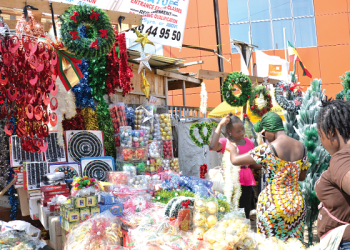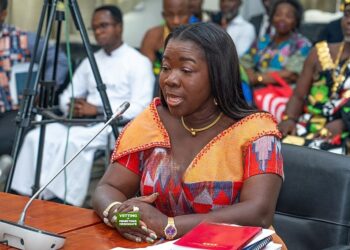The Acting Dean of Faculty of Law at the Ghana Institute of Management and Public Administration (GIMPA), Dr. Alex Ansong has attributed the current trade impasse between Ghana and Nigeria to lack of clarity in the Ghana Investment promotion Centre (GIPC) Act 2013, Act 865 and the Ecowas Law on trade.
His comments come on the back of the Speaker of Parliament, Alban Bagbin, announcing before Nigeria’s House of Representatives a review of the GIPC Act 2013, Act 865 that bars foreigners from partaking in retail trade.
Reacting to this on Plan B FM ‘Nkosuo Nsem’ with Ohene Addo, Dr. Ansong said that there needs to be a clear distinction between the GIPC Act and the ECOWAS law governing trade among member states to bring finality to the trade impasse between Ghana and Nigeria.
“The GIPC Act prevents foreigners from participation in the sale of goods in Ghana or retail business such as operating a taxi service, barber shop, production of exercise books, sachet water business, retail outlet for pharmaceutical products among others. These are reserved for Ghanaians.
“We use an investment model in Ghana that is the negative list which prevents foreigners from investing in the retail business in the country. It only allows foreign traders to engage in retail business in the country when they are bringing something substantial and significant to the economy of the country”
“Ghana has signed an international treaty with ECOWAS and the law requires the same treatment given to domestic investors should aslo be extended to ECOWAS citizens. There should be no discrimination, so in that respect, legally the Nigerian traders have a case.
Under this same ECOWAS law, Ghana has signed another protocol which gives them the right to notify the Executive Secretary of ECOWAS if they do not intend to extend equal treatment to ECOWAS citizens in a particular business area same applies to their Nigerian counterpart.
So, there is a bit of a problem between the GIPC Act and our obligations under ECOWAS Law” he explained
He further called on government to give subsidies and tax breaks to local businesses for them to compete favourably with their foreign counterparts. “I think the Government can help Ghanaian businesses with subsidies if the money is there. If you look at the global business now, we cannot entirely shield the domestic market from competition. What we can do is to help our domestic industries to thrive by awarding government procurement contracts to local companies rather than resorting to protecting our domestic industries from competition “he added
There has been agitations and closure of Nigerian retail shops in Accra and Kumasi by GUTA as their plea to Ghanaian government to restrict Nigerian traders in Ghana has fallen on deaf ears.










Discussion about this post